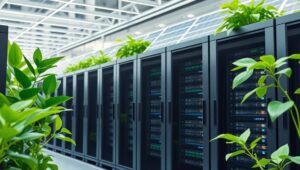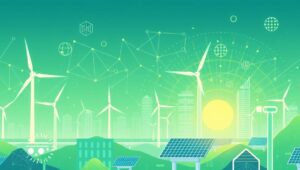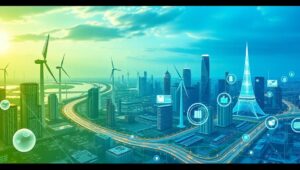Green Computing: Sustainable Data Centers and Practices (2025+)
Green Computing: Sustainable Data Centers and Practices (2025+) In an era defined by rapid technological advancement and increasing environmental awareness, green computing has emerged as a critical field. This article explores the core concepts of green computing, its significance for sustainable data centers, and the evolving practices shaping its future beyond 2025. What is Green Computing? Green computing, also known as sustainable computing, is the practice of using computers and related resources in an environmentally responsible manner. It encompasses various aspects, including energy efficiency, reducing hazardous materials, and promoting recyclability. Key Principles of Green Computing: Energy Efficiency: Minimizing the energy










